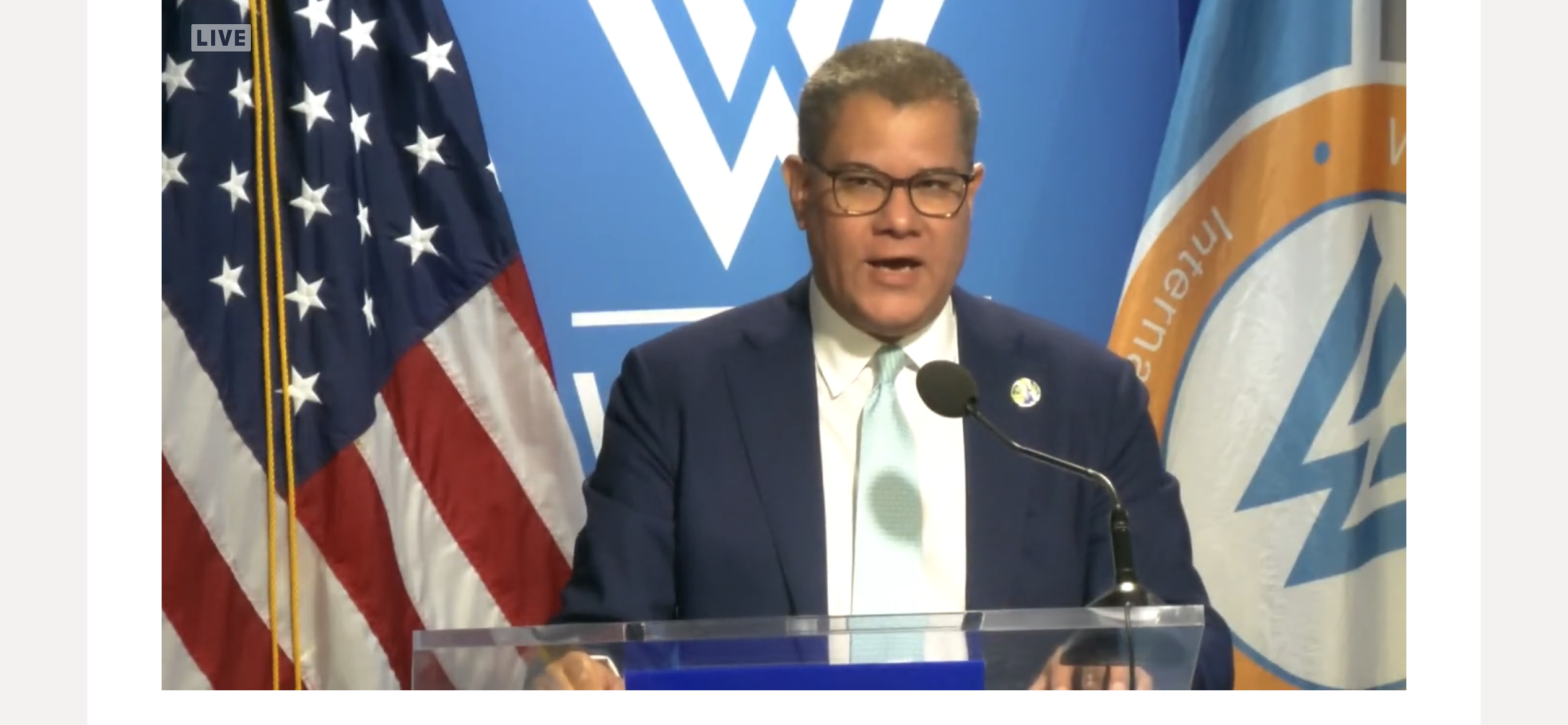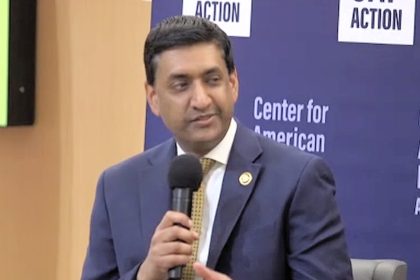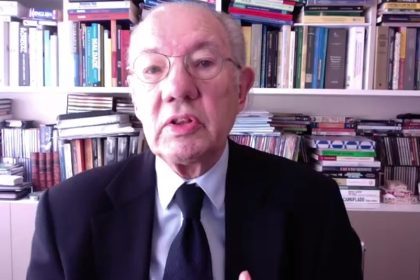Outgoing COP26 President Sharma: ‘We Are Not Doing Everything in Our Power’

WASHINGTON — “We should be under no delusions; we are not doing everything in our power,” outgoing COP26 president and British Cabinet Minister Alok Sharma candidly shared with the Wilson Center last week as he looked back on his three years leading the Conference of the Parties to the United Nations Framework Convention on Climate Change.
In advance of the 27th COP — to be held Nov. 6-18, 2022, in Egypt — and transferring leadership to Egyptian Foreign Minister Sameh Shoukry, Sharma admitted that nationalism and self-interest continued to affect negotiations despite many of the achievements made toward rising international climate ambitions.
“We left Glasgow with what I described at the time as a fragile wing,” Sharma told a gathering convened by the nonpartisan public policy organization.
Critics pointed out that while there were steps forward, successes of COP26 relied on pledges for future action with no guarantee that those promises would come to fruition. Some are being realized; others are faltering.
“We are realizing the growth story of the century,” Sharma said, speaking of the global increase in use of renewables, strengthening emissions reduction targets, and even geothermal serving as base load, “but despite all of this, I do find myself reflecting on three years in this role.”
Sharma is passing the torch in an exceptionally fractious time in geopolitics, and when the global economy built on fossil fuels is rapidly changing while climate catastrophes are not only becoming more frequent but more ferocious.
“The reality is that these events are becoming increasingly connected,” Sharma said.
“Death, disease, displacement. … This is no longer something that happens to other people, people far away,” he said, warning that the future long predicted is now becoming a reality for many millions.
And still, COP negotiating conversations have a “remarkable similarity [to] conversations I had three years ago,” Sharma lamented.
“Some of the world’s major emitters threaten to backslide on commitments that they made previously in Glasgow and Paris,” he added. “And there does remain a big deficit in political will and that can-do spirit which is so badly needed.”
Sharma claimed that a primary worry was nations’ ability to focus on more than one thing at a time, allowing political conflicts, financial concerns, and other cyclical crises to distract from a focus on climate concerns, just as the cause lost critical momentum with similar crises in 2008.
But of equal concern is adapting national and international institutions for a future where climate is integral and existential.
“The world cannot afford institutions to be cautious in how their considerable resources are deployed to tackle the climate crisis.
“I think we do have to question whether all of our current international institutions have fully internalized the grave urgency of the climate situation,” Sharma said, “and whether we are truly capable of delivering net zero by the end of this century.”
Sharma admitted that the call to overhaul the global financial architecture was “compelling,” saying that the world may be ripe for a “Bretton Woods 2 moment,” harkening back to the 1944 agreement to negotiate monetary relations among nations.
“I think the world is recognizing that we cannot tackle the defining challenge of this century with institutions that were designed for the last,” Sharma said, urging that institutions should adapt to make the climate crisis a fundamental part of their overall purpose.
“Friends, we are in a new world and navigating this context is our defining challenge,” Sharma pleaded. “It is unfathomable to me that we are not doing everything in our power to… prevent climate catastrophe.
“As I reflect on the legacy of COP26 … I know that the world can rise to the challenge,” Sharma said. “The last three years have been a unique privilege. I am certain that if we can align all of the work that I’ve seen and that I’ve talked about today and adapt the systems that underpin it, it will not just be the century that we brought the world back from the precipice, it’ll be the century that we unlocked a just and sustainable path to prosperity for billions of people around the world. ”
Kate can be reached at [email protected]
























